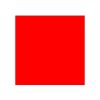8 Beginner Science Books to Spark Your Curiosity and Build Foundations
Recommended by Florian Krammer, Daniël Lakens, and leading Science educators for accessible learning


Every expert in Science started exactly where you are now—curious but cautious. The world of Science offers a vast playground of discovery, and beginning with the right books makes all the difference. Whether you’re captivated by the cosmos, intrigued by the tiniest particles, or eager to understand how scientific thinking shapes our world, approachable guides can open doors without overwhelming you.
Take Florian Krammer, a professor at the Icahn School of Medicine, who found inspiration in The Beginner's Guide to Winning the Nobel Prize by Peter Doherty. It reframes scientific success as a human journey, not a distant mystique. Meanwhile, Daniël Lakens, a psychology and meta-science professor at TU Eindhoven, recommends What Is This Thing Called Science? for its clear introduction to how science works at its core. These experts appreciate books that mix clarity with depth, easing newcomers into complex ideas.
While these beginner-friendly books provide excellent foundations, readers seeking content tailored to their specific learning pace and goals might consider creating a personalized Science book that meets them exactly where they are. This customized approach helps you build knowledge efficiently without feeling lost or rushed.
Recommended by The New Scientist
“Riveting questions fielded by three top astrophysicists in engaging style, with great illustrations and just a handful of equations. They may just have produced the best book about the universe in the universe.”
by Neil deGrasse Tyson, Michael A. Strauss, J. Richard Gott··You?
by Neil deGrasse Tyson, Michael A. Strauss, J. Richard Gott··You?
Drawing from decades of combined astrophysics experience at Princeton and the Hayden Planetarium, Neil deGrasse Tyson, Michael A. Strauss, and J. Richard Gott open the cosmos to newcomers in a clear, engaging way. You’ll explore everything from black holes and galaxies to the origins of the universe, guided by accessible explanations that balance humor with scientific rigor. Specific chapters unpack topics like the life cycle of stars and the accelerating expansion of the universe, making complex ideas manageable and intriguing. If you’re curious about the cosmos but wary of dense jargon, this book offers a thoughtful introduction without talking down to you.
Recommended by Kirkus Reviews
“A lucid and humorous layman’s guide to quantum mechanics. Even first-time physics readers will come away with a working knowledge of one of the universe’s most enigmatic subjects.”
Unlike most science books that dive straight into complex equations, Tim James’s Fundamental takes a different route by blending storytelling with clear explanations, making quantum and particle physics accessible without requiring advanced math. You’ll explore mind-bending concepts like time travel, antimatter, and quantum superposition, all framed through the fascinating lives and discoveries of the scientists behind them. For example, the book’s chapters on quantum field theory and the Higgs boson break down these topics in ways that even newcomers can grasp. If you’re curious about how invisible forces shape everything around you and want a readable introduction to these strange phenomena, this book offers a solid foundation without overwhelming jargon.
This tailored Science Starter Blueprint offers a personalized exploration of foundational scientific concepts and methods, designed specifically to match your background and learning pace. It focuses on introducing core principles progressively, helping you build confidence without overwhelm. The book covers essential topics such as the scientific method, basic physics, chemistry, biology, and data interpretation, all tailored to your interests and goals. By addressing your unique needs, this guide transforms the often intimidating world of science into an accessible and engaging journey, making complex ideas clear and approachable. Experience a learning process crafted just for you, enabling steady mastery of science fundamentals with ease and clarity.
by Austin Current··You?
When Austin Current set out to demystify strength training, he tapped into his deep expertise in anatomy and physiology to offer you more than just workout routines. This book guides you through how muscles grow and respond to exercise, explaining the science behind each movement with clear visuals and detailed breakdowns of 33 exercises. You'll also find practical insights on nutrition tailored for various diets, injury prevention strategies, and adaptable workout plans for different fitness levels. If you're eager to understand not just the how but the why of strength training, this book provides a straightforward, science-based foundation without overwhelming jargon.
When Ann Swanson first realized how little accessible scientific resources existed for yoga practitioners, she crafted this book to fill that gap with clarity and precision. You’ll find detailed CGI illustrations that break down 30 essential yoga poses, revealing the underlying anatomy and physiology in ways that demystify complex biomechanics. The book doesn't just stop at poses—it also explores how yoga impacts various body systems, drawing on recent scientific studies that challenge old myths and highlight real benefits like improvements in memory and respiration. If you’re eager to deepen your practice with a clear scientific foundation, this book guides you through understanding your body’s mechanics and the science behind yoga’s effects.
Recommended by Florian Krammer
Professor at Icahn School of Medicine
“@NickytaLeb Na, its not bad. There are many Nobel prize winners who are absolutely normal and continue to do fantastic science. Look at @ProfPCDoherty and many others. That leads me to another book recommendation. I enjoyed this book very much.” (from X)
by Peter Doherty DVM·You?
by Peter Doherty DVM·You?
This book removes the mystique surrounding the Nobel Prize by sharing Peter Doherty's personal journey from a modest start in Australia to becoming a Nobel Laureate in immunology. You gain insights into the scientific process, including how research topics are chosen and funded, with clear explanations of Doherty's groundbreaking work on T-cells. It also addresses the challenges scientists face, like public communication and ethical debates around topics such as genetically modified foods. If you're curious about what it really takes to succeed in science and want practical perspectives on a research career, this offers a candid and approachable guide.
This tailored book explores quantum mechanics with clarity and approachability, designed specifically for newcomers eager to grasp its core principles without feeling overwhelmed. It reveals foundational concepts progressively, focusing on your interests and matching your background to build confidence through a comfortable learning pace. The content carefully unpacks complex ideas such as wave-particle duality, superposition, and entanglement, making them accessible and engaging. By addressing your specific goals, this personalized guide helps you unlock the mysteries of quantum physics in a way that feels natural and inspiring, turning daunting topics into an enlightening journey tailored just for you.
Recommended by Daniël Lakens
Psychology & Meta-Science Professor at TU Eindhoven
“Finally read "What is this thing called science?" by Chalmers (overview of the book: - pdf is a search away). If you want to learn about philosophy of science, you can't go wrong starting here. Very clear, and a great choice of topics.” (from X)
by Alan F. Chalmers·You?
by Alan F. Chalmers·You?
Alan F. Chalmers's decades of teaching philosophy of science shaped this accessible exploration of how science works and what sets it apart from other knowledge systems. You’ll gain a clear understanding of scientific methods, the role of experimentation, and the evolving nature of scientific knowledge, illustrated with examples like atomism’s historical evolution. This book suits anyone new to science philosophy or curious about the foundations of scientific inquiry, offering clarity without oversimplifying complex ideas. While it doesn’t dive into technical science details, it provides a solid conceptual framework that prepares you for deeper study or thoughtful engagement with scientific debates.
by Dr. Stuart Farrimond·You?
by Dr. Stuart Farrimond·You?
After analyzing decades of gardening practices, Dr. Stuart Farrimond developed this book to cut through the noise of conflicting advice with clear scientific explanations. You’ll learn why pruning timing matters, how plants respond to watering, and even the science behind composting’s sliminess, all framed in a Q&A style that makes complex biology approachable. This book suits you whether you’re just starting or curious about the science behind your garden’s growth cycle, offering practical insights supported by recent horticultural research. Chapters like the life cycle of the garden and myth-busting sections reveal not just how to garden, but why certain methods work, deepening your understanding and confidence.
by Richard DeWitt··You?
by Richard DeWitt··You?
Richard DeWitt challenges the conventional view that history and philosophy of science must be daunting for newcomers. Drawing on his extensive teaching experience as a philosophy professor, he breaks down complex ideas into clear, digestible chapters enriched with examples from physics and biology. You’ll explore how dominant scientific worldviews evolved, from classical mechanics to quantum theory and relativity, gaining insight into how scientific thought shapes our understanding of reality. The book’s thoughtful approach makes it ideal for anyone wanting a solid grasp of foundational science concepts without getting lost in jargon.
Beginner Science, Tailored to You ✨
Build confidence with personalized guidance without overwhelming complexity.
Thousands of beginners started their Science journey here
Conclusion
These eight books form a diverse yet connected pathway into Science, each welcoming you with clear explanations and engaging stories. If you’re completely new, starting with What Is This Thing Called Science? offers a conceptual framework that sharpens your scientific thinking. From there, books like Welcome to the Universe and Fundamental expand your grasp of physical phenomena, while The Science of Gardening and Science of Yoga bring practical science to life.
For those eager to understand the human side of scientific achievement, The Beginner's Guide to Winning the Nobel Prize reveals the realities behind research careers. You can progress from philosophy to practice, building confidence step by step. Alternatively, you can create a personalized Science book that fits your exact needs, interests, and goals to create your own personalized learning journey.
Remember, building a strong foundation early sets you up for success in Science. Choosing beginner-friendly, expert-recommended books ensures your time and curiosity are well invested. Your scientific journey starts with a single page—turn it today.
Frequently Asked Questions
I'm overwhelmed by choice – which book should I start with?
Yes, it can feel daunting. Start with What Is This Thing Called Science? by Alan F. Chalmers for a clear, gentle introduction to how science works, setting the stage for more detailed topics later.
Are these books too advanced for someone new to Science?
No, each book is carefully chosen to be approachable for beginners. For example, Fundamental explains quantum physics with storytelling, avoiding complex math to keep it accessible.
What's the best order to read these books?
Begin with philosophy and foundations like What Is This Thing Called Science?, then explore specific fields such as astrophysics with Welcome to the Universe, and move to applied science books like Science of Strength Training.
Should I start with the newest book or a classic?
Both have value. Classics like What Is This Thing Called Science? provide solid foundations, while recent books like The Science of Gardening offer up-to-date insights. Mixing both enriches your learning.
Do I really need any background knowledge before starting?
No prior knowledge is needed. These books assume you’re new and build concepts step by step, making them perfect for anyone curious about Science without formal training.
Can I get a Science book tailored to my interests and pace?
Absolutely. While these expert books lay great groundwork, you can also create a personalized Science book that matches your background, interests, and goals for a focused, efficient learning experience.
📚 Love this book list?
Help fellow book lovers discover great books, share this curated list with others!
Related Articles You May Like
Explore more curated book recommendations







